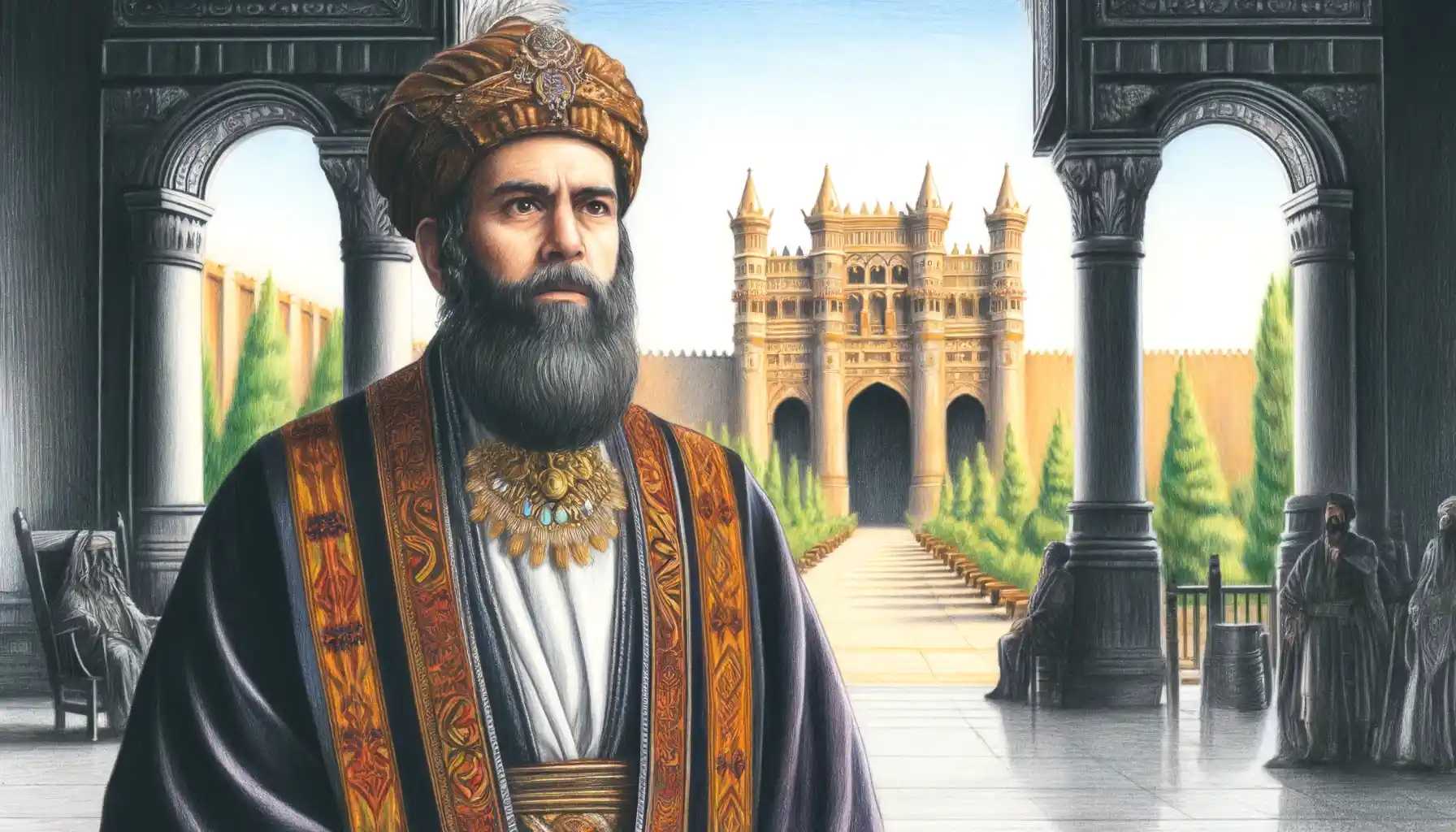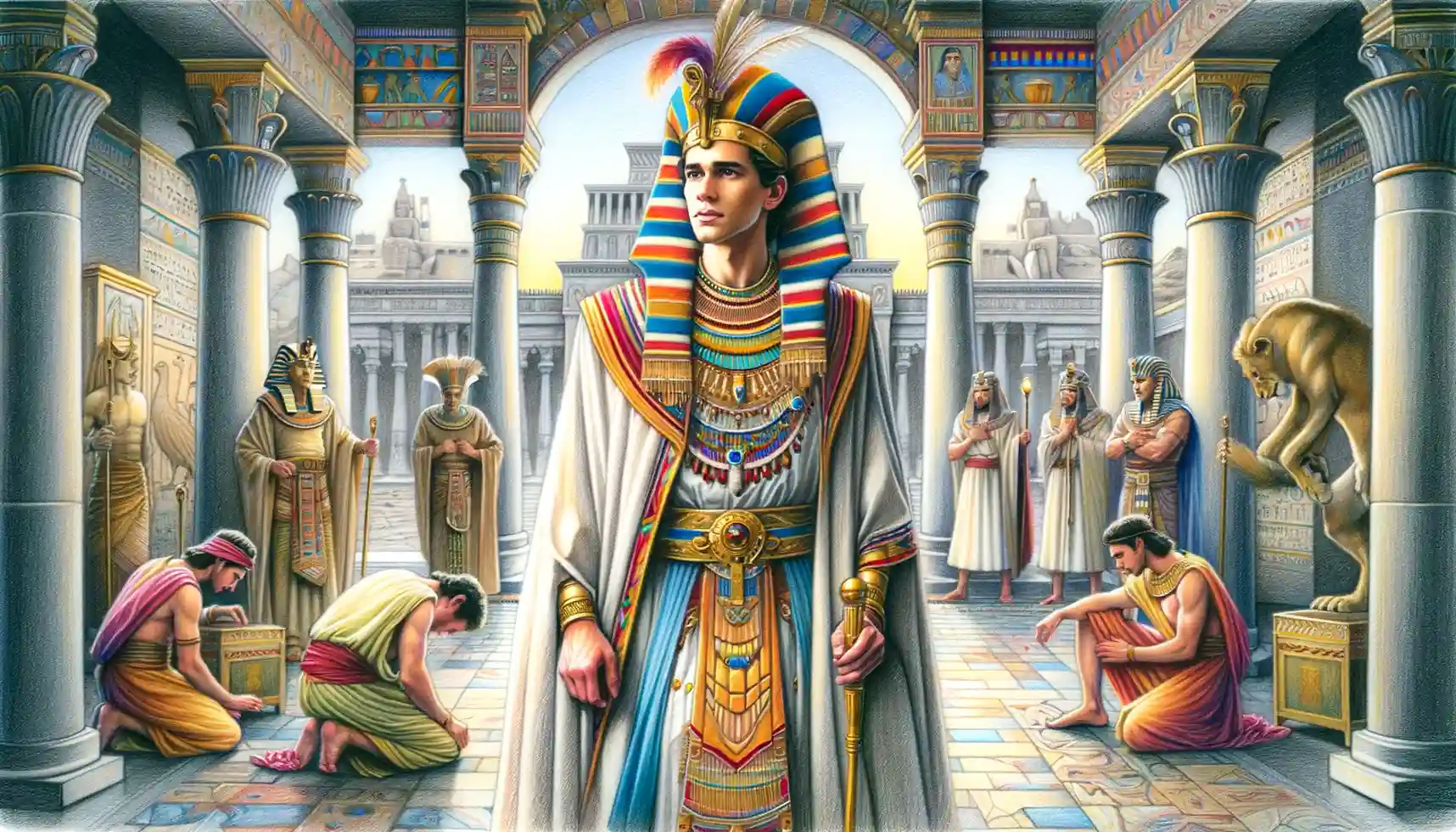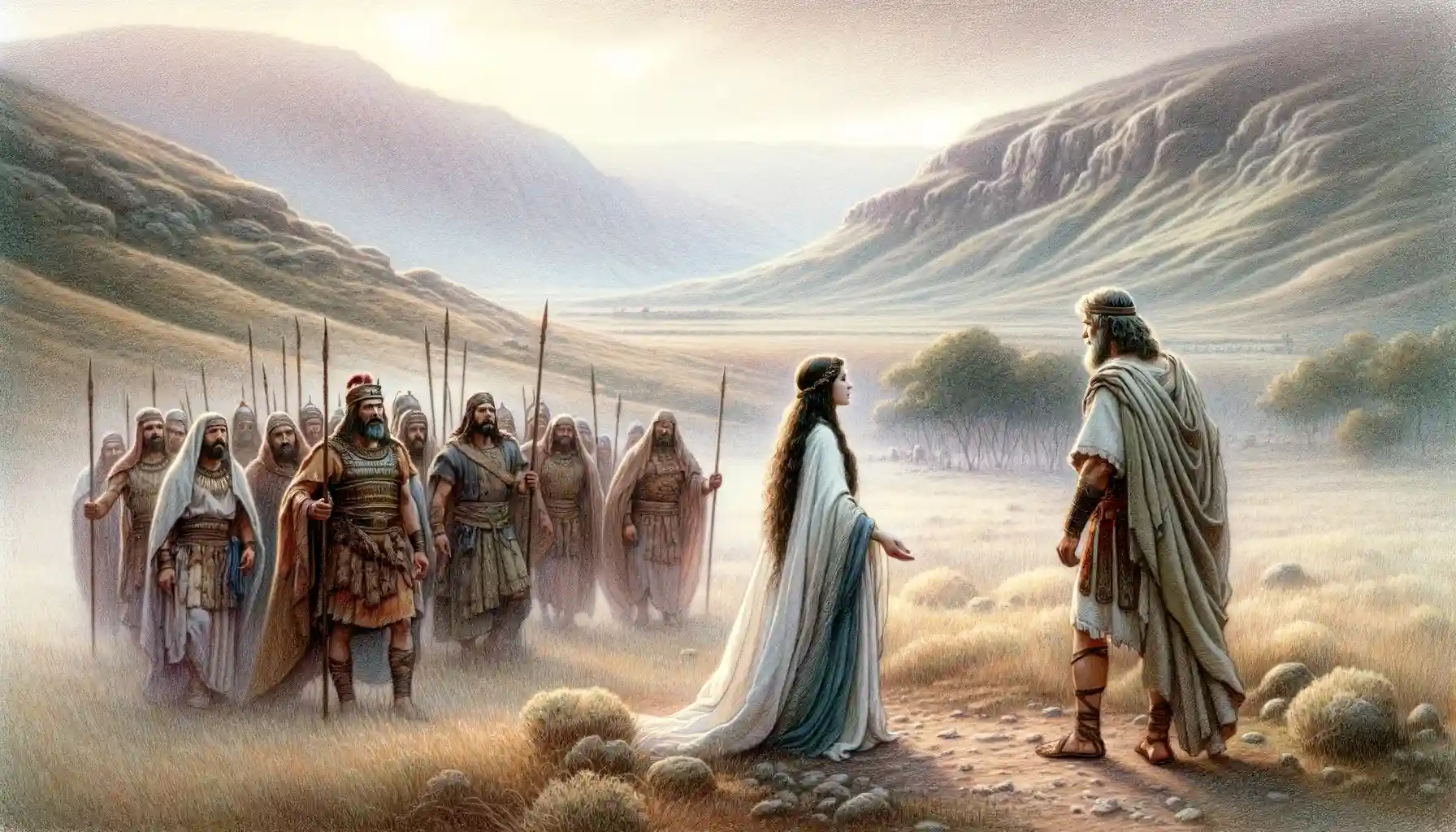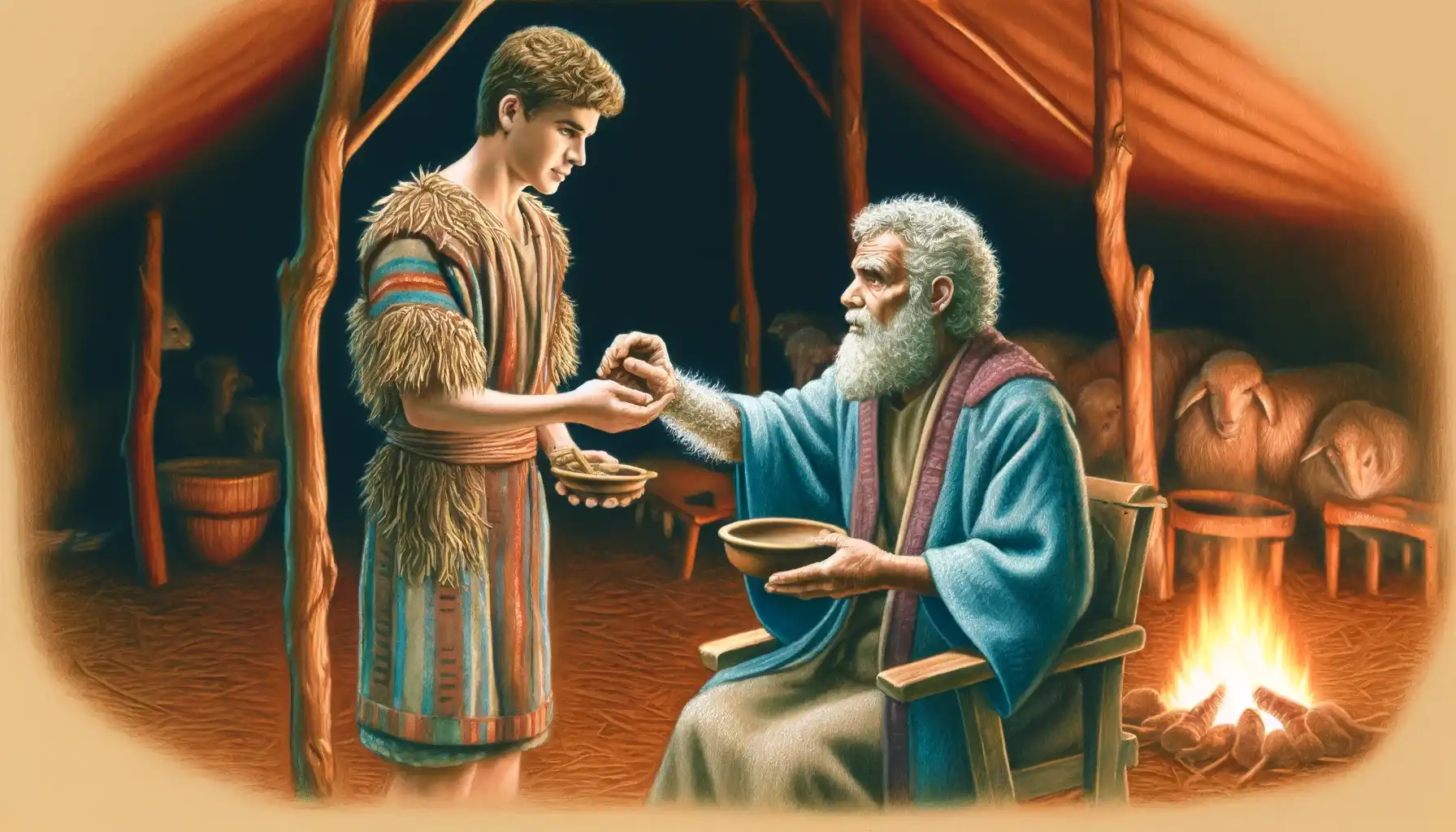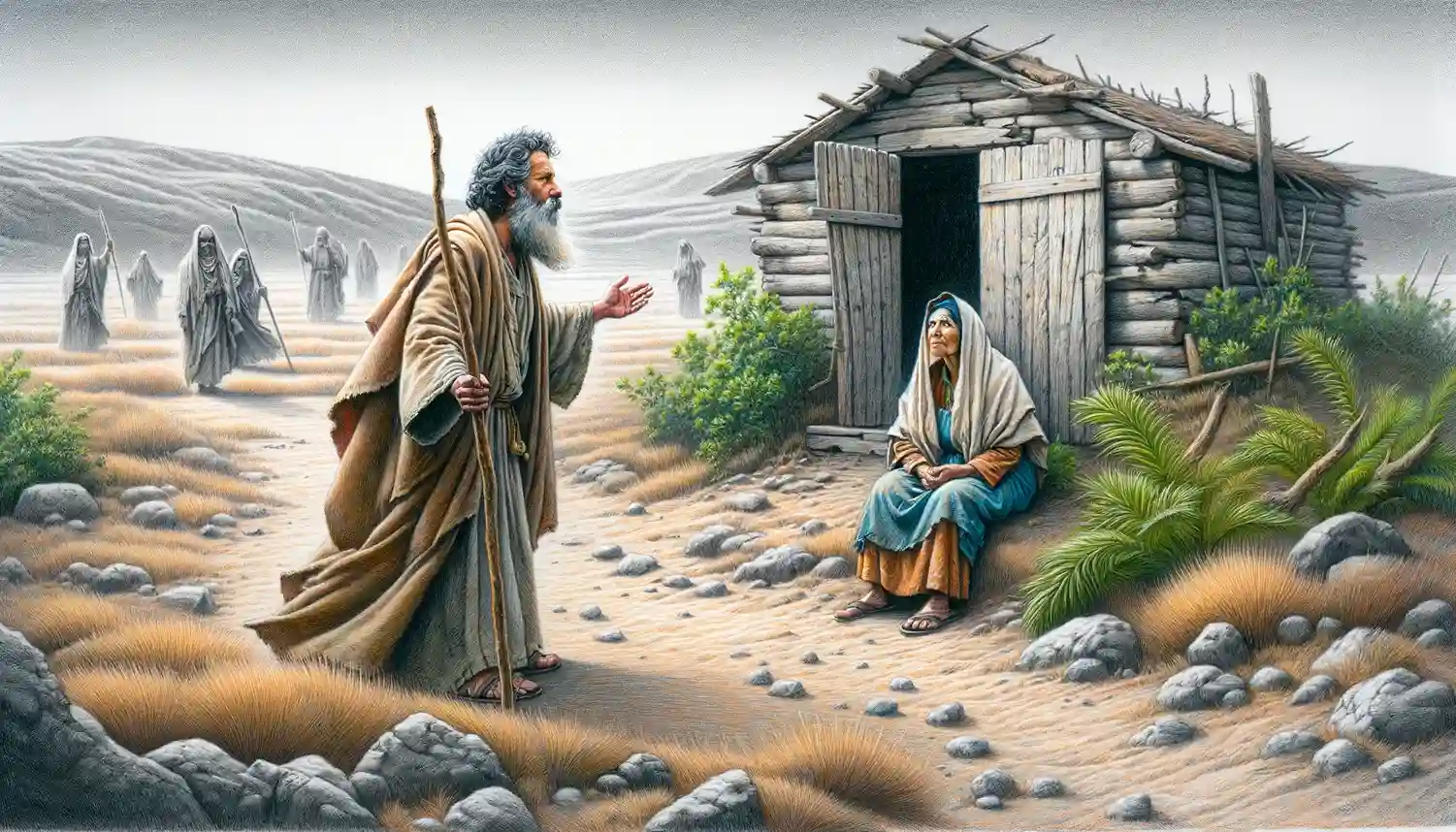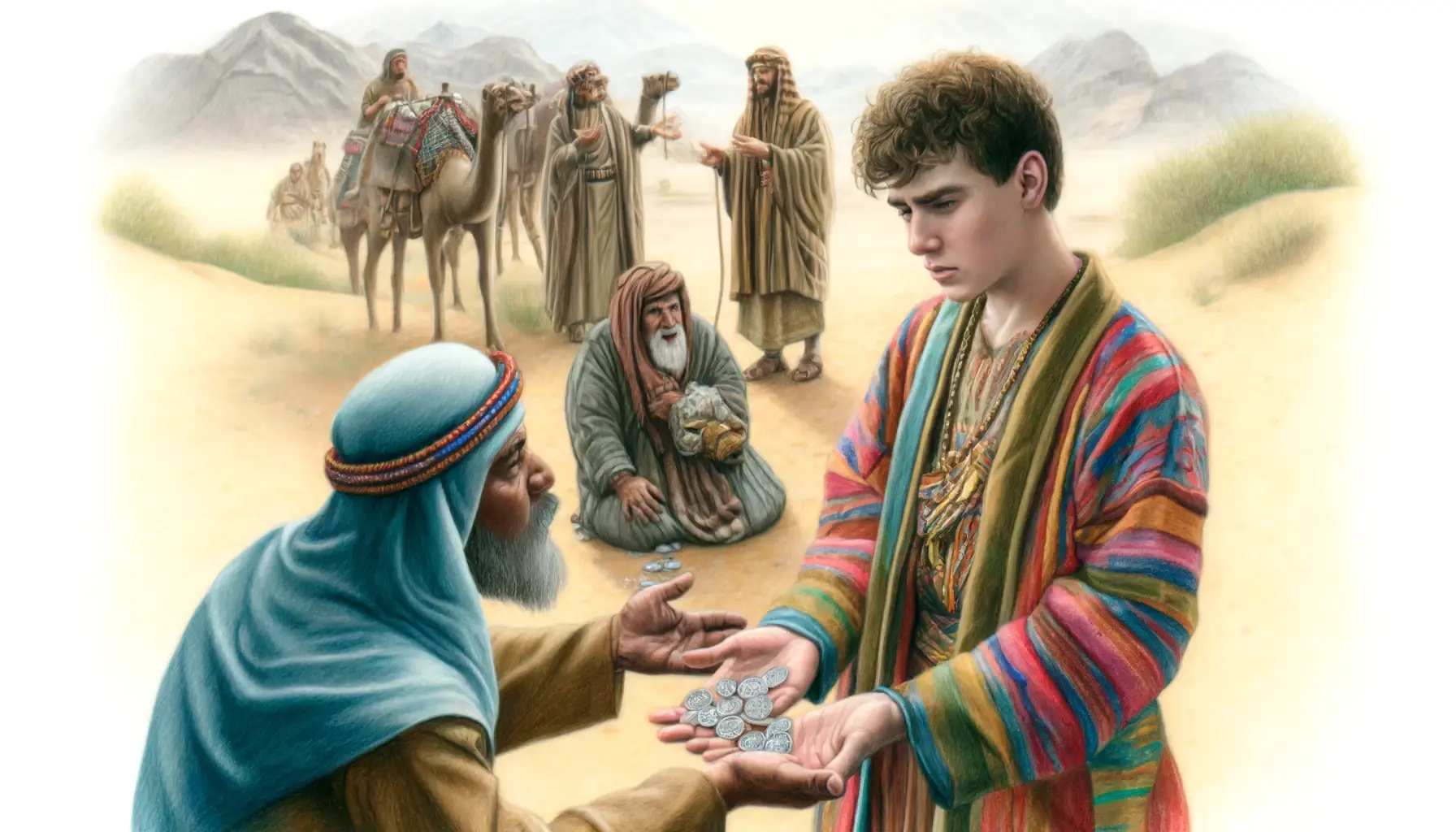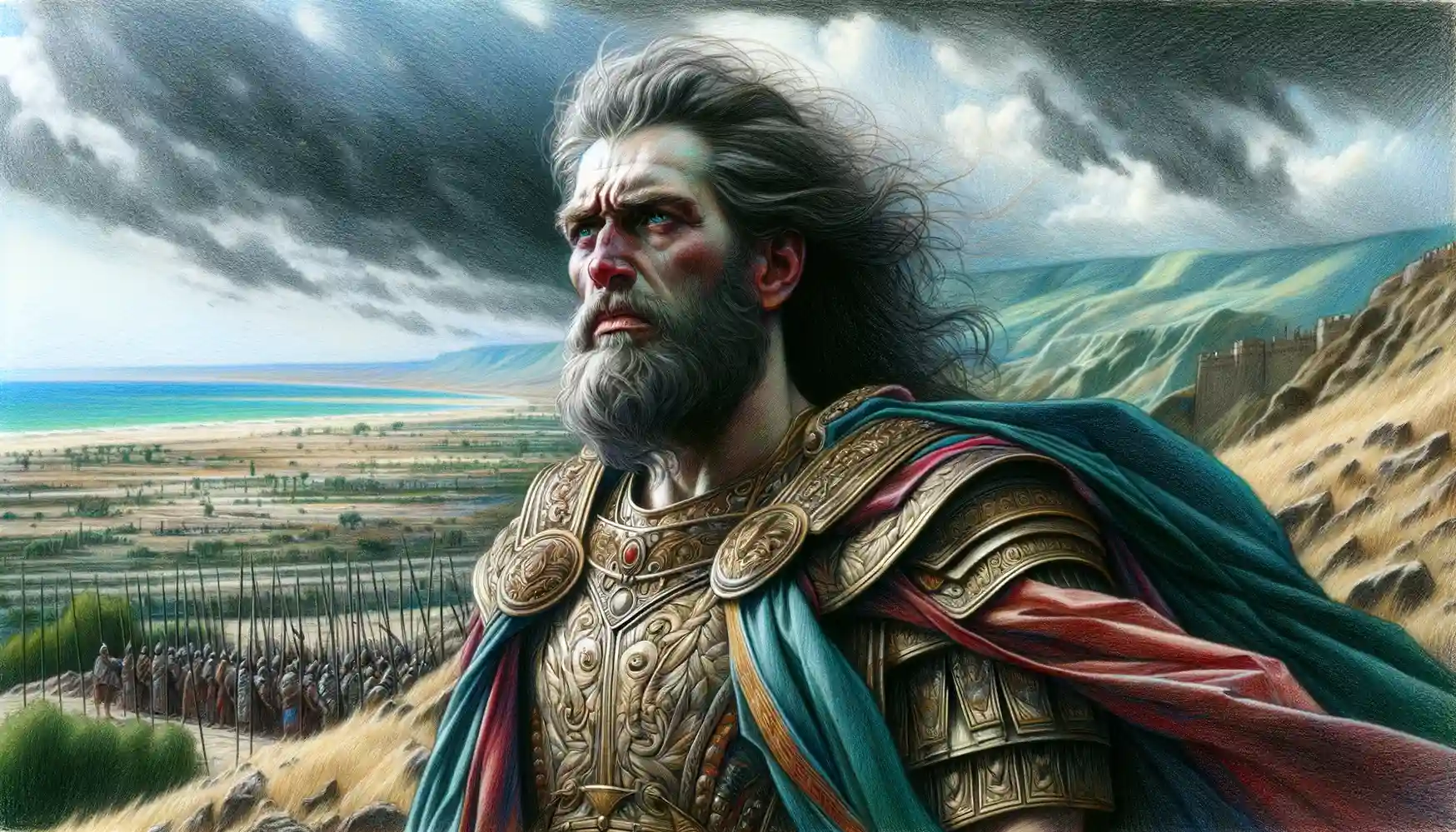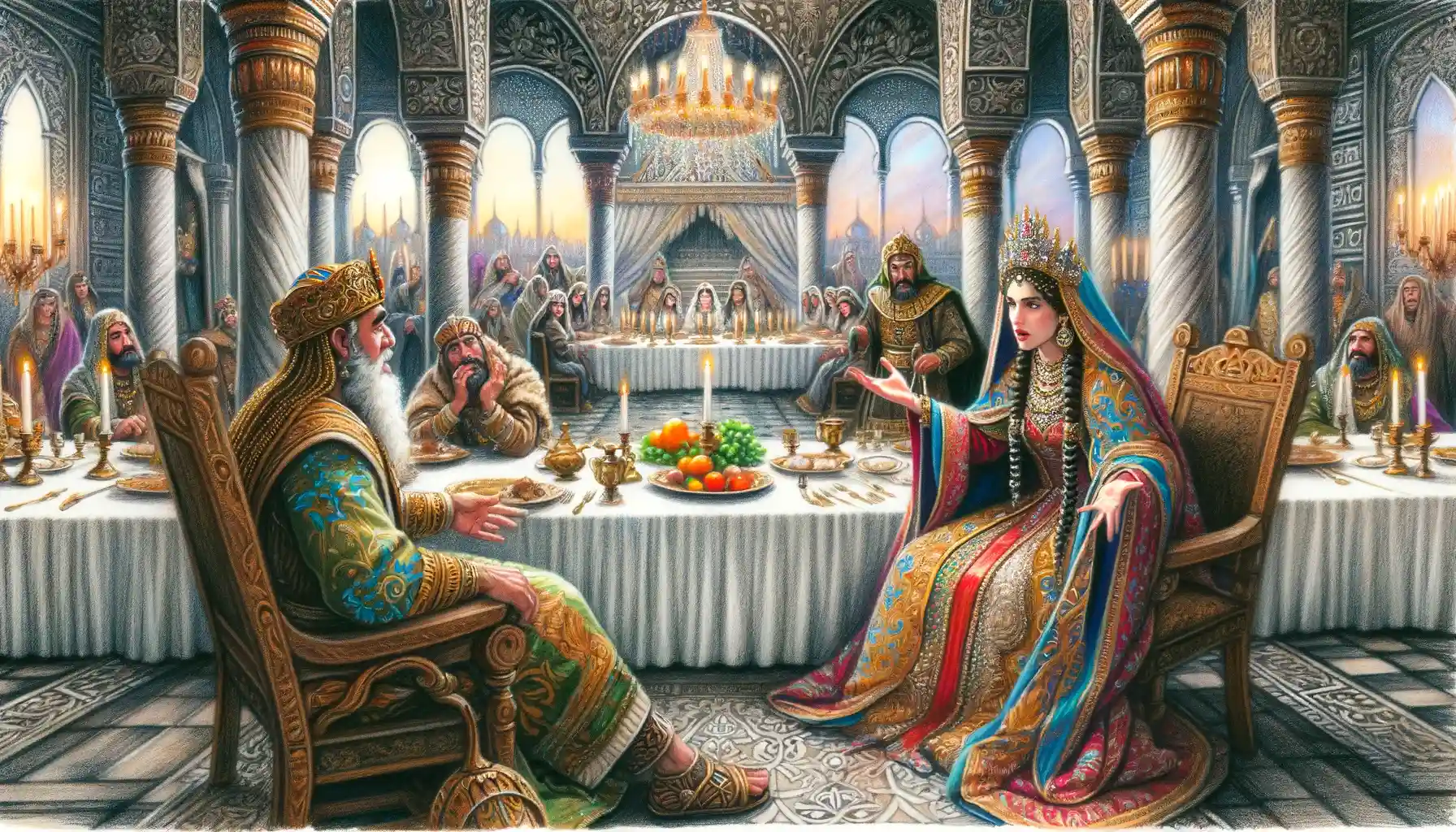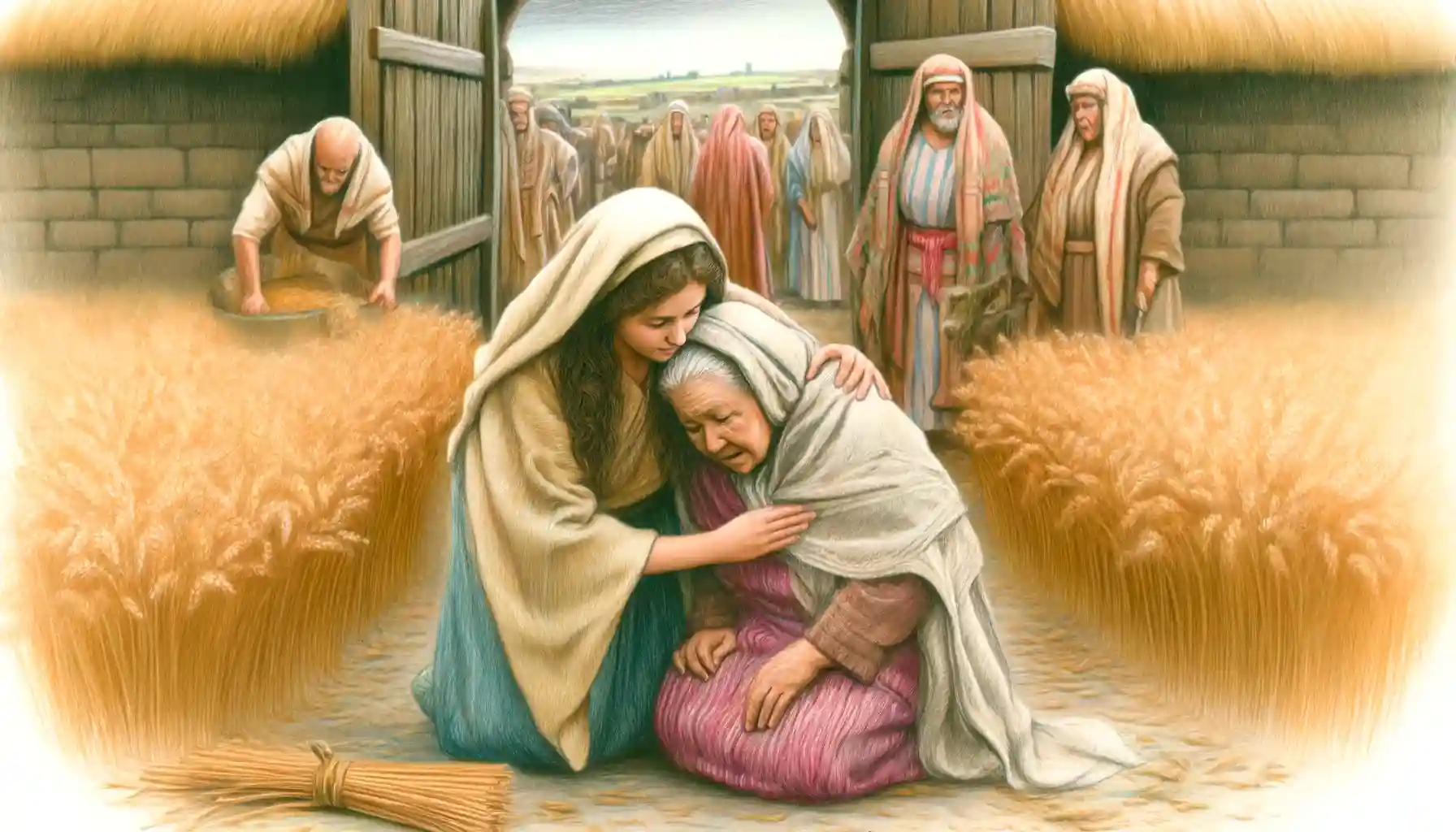Esther, the Jewish queen of Persia, displayed remarkable bravery and faith by risking her life to save her people from extermination, leading to the establishment of the festival of Purim.
Mordecai, a key figure in the Book of Esther, was a Jewish leader who helped save his people from annihilation through his bravery, wisdom, and the influence of his cousin Esther, leading to the establishment of the festival of Purim.
Joseph, the favored son of Jacob, known for his colorful coat and prophetic dreams, was sold into slavery by his brothers, rose to power in Egypt by interpreting dreams, and ultimately forgave and reconciled with his family, providing for them during a severe famine.
Abigail is celebrated in the biblical narrative for her quick thinking, wise speech, and acts of diplomacy that not only saved her household from destruction but also led to her becoming the wife of King David.
Jacob deceived Isaac by pretending to be his brother Esau. He wore Esau’s clothes and placed goatskins on his arms and neck to mimic Esau’s hairy skin. With the help of his mother, Rebekah, Jacob brought Isaac food, seeking his blessing. Isaac, who was old and blind, was tricked into giving Jacob the blessing meant for Esau.
Elijah’s flight to Zarephath in 1 Kings 17:3-9, following his prophetic confrontation with King Ahab, illustrates a critical juncture where God directs Elijah to a place outside Israel, demonstrating divine providence and protection, and highlights the extension of God’s grace and provision through a sustained miracle involving a widow’s endless supply of flour and oil, affirming the universality of God’s care beyond ethnic and national boundaries.
In Genesis 37:28, Joseph’s brothers sell him into slavery to Ishmaelite traders for twenty shekels of silver, setting in motion a series of events that fulfill divine prophecies and illustrate themes of betrayal, providence, and redemption within the biblical narrative.
Saul’s story serves as a cautionary tale about the importance of obedience to God and the dangers of personal ambition and jealousy in leadership.
Esther’s story resonates with its dramatic narrative and profound lessons about courage, identity, and providence, making it a cherished text in religious and cultural traditions.
The Book of Ruth, with its rich narrative and profound themes, provides an inspiring story of human loyalty interwoven with divine orchestration, making it a beloved part of biblical literature.


